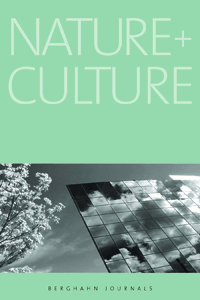 We are delighted to inform you that we will be present at The Society for Applied Anthropology 77th Annual Meeting in Santa Fe, NM, March 28 – April 1, 2017. Please stop by our table to browse the latest selection of books at discounted prices & pick up some free journal samples.
We are delighted to inform you that we will be present at The Society for Applied Anthropology 77th Annual Meeting in Santa Fe, NM, March 28 – April 1, 2017. Please stop by our table to browse the latest selection of books at discounted prices & pick up some free journal samples.
If you are unable to attend, we would like to provide you with a special discount offer. Receive a 25% discount on all Anthropology titles found on our website, valid through May 1st, 2017. At checkout, simply enter the discount code SfAA17. Visit our website to browse our newly published interactive online Anthropology & Sociology Catalog or use the new enhanced subject searching features for a complete listing of all published and forthcoming titles.
Here is a preview of some of our newest releases on display:
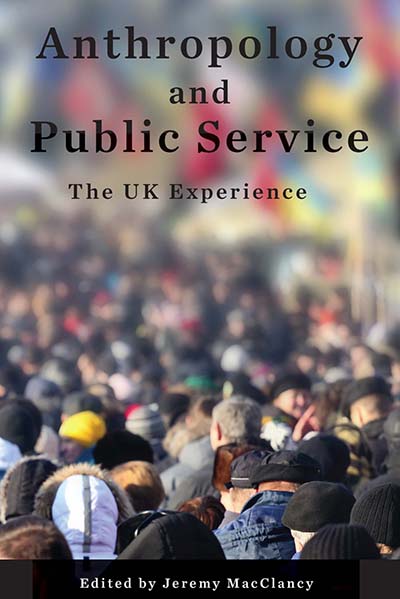 ANTHROPOLOGY AND PUBLIC SERVICE
ANTHROPOLOGY AND PUBLIC SERVICE
The UK Experience
Edited by Jeremy MacClancy
These days an increasing number of social anthropologists do not find employment within academia. Rather, many find jobs with commercial organizations or in government, where they run research teams and create policy. These scholars provide a much-needed social dimension to government thinking and practice. Anthropology and Public Service shows how anthropologists can set new agendas, and revise old ones in the public sector. Written for scholars and students of various social sciences, these chapters include discussions of anthropologists’ work with the Department for International Development, the Ministry of Defence, the UK Border Agency, and the Cabinet Office, and their contributions to prison governance.
Read Chapter 1. Introduction : Anthropology and Public Service
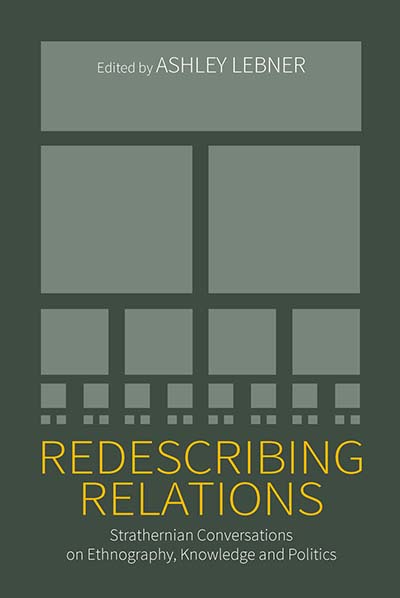 Paperback Original
Paperback Original
REDESCRIBING RELATIONS
Strathernian Conversations on Ethnography, Knowledge and Politics
Edited by Ashley Lebner
Afterword by Marilyn Strathern
Marilyn Strathern is among the most creative and celebrated contemporary anthropologists, and her work draws interest from across the humanities and social sciences. Redescribing Relations brings some of Strathern’s most committed and renowned readers into conversation in her honour – especially on themes she has rarely engaged. The volume not only deepens our understanding of Strathern’s work, it also offers models of how to extend her relational insights to new terrains. With a comprehensive introduction, a complete list of Strathern’s publications and a historic interview published in English for the first time, this is an invaluable resource for Strathern’s old and new interlocutors alike.
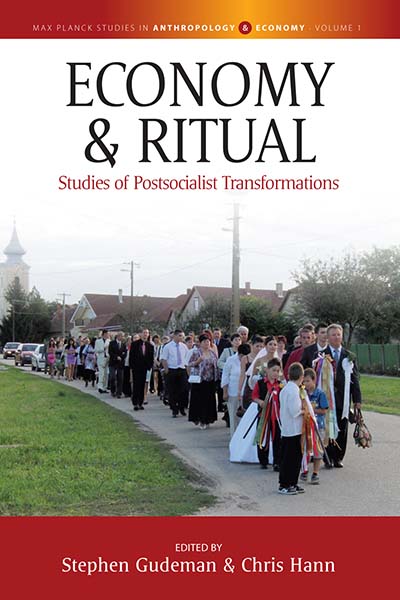 New in Paperback
New in Paperback
ECONOMY AND RITUAL
Studies in Postsocialist Transformations
Edited by Stephen Gudeman and Chris Hann
Volume 1, Max Planck Studies in Anthropology and Economy
According to accepted wisdom, rational practices and ritual action are opposed. Rituals drain wealth from capital investment and draw on a mode of thought different from practical ideas. The studies in this volume contest this view. Comparative, historical, and contemporary, the six ethnographies extend from Macedonia to Kyrgyzstan. Each one illuminates the economic and ritual changes in an area as it emerged from socialism and (re-)entered market society. Cutting against the idea that economy only means markets and that market action exhausts the meaning of economy, the studies show that much of what is critical for a people’s economic life takes place outside markets and hinges on ritual, understood as the negation of the everyday world of economising.
Read Introduction: Ritual, Economy and the Institutions of the Base
Studies in Public and Applied Anthropology Series
The books published in this series offer important insight into these developments by examining the expanding role of anthropologists practicing their discipline outside academia as well as exploring the ethnographic, methodological and theoretical contribution of anthropology, within and outside academia, to issues of public concern.
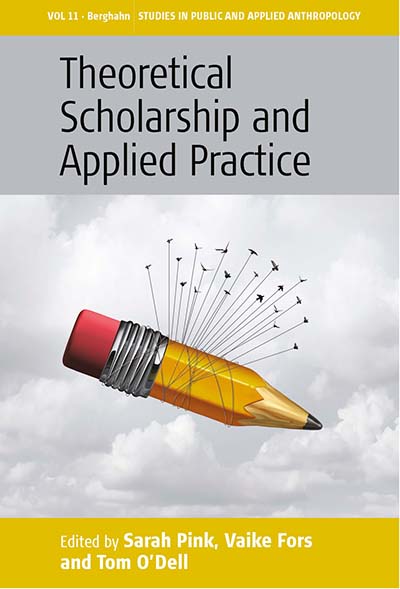
Volume 11
THEORETICAL SCHOLARSHIP AND APPLIED PRACTICE
Edited by Sarah Pink, Vaike Fors, and Tom O’Dell
Academics across the globe are being urged by universities and research councils to do research that impacts the world beyond academia. Yet to date there has been very little reflection amongst scholars and practitioners in these fields concerning the relationship between the theoretical and engaged practices that emerge through such forms of scholarship. Theoretical Scholarship and Applied Practice investigates the ways in which theoretical research has been incorporated into recent applied practices across the social sciences and humanities. This collection advances our understanding of the ethics, values, opportunities and challenges that emerge in the making of engaged and interdisciplinary scholarship.
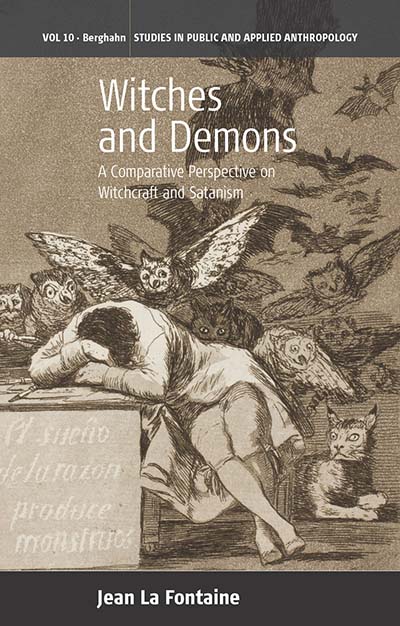 Volume 10 Paperback Original
Volume 10 Paperback Original
WITCHES AND DEMONS
A Comparative Perspective on Witchcraft and Satanism
Jean La Fontaine
Devil worship, black magic, and witchcraft have long captivated anthropologists as well as the general public. In this volume, Jean La Fontaine explores the intersection of expert and lay understandings of evil and the cultural forms that evil assumes. The chapters touch on public scares about devil-worship, misconceptions about human sacrifice and the use of body parts in healing practices, and mistaken accusations of children practicing witchcraft. Together, these cases demonstrate that comparison is a powerful method of cultural understanding, but warns of the dangers and mistaken conclusions that untrained ideas about other ways of life can lead to.
Read Introduction: Understanding the Other
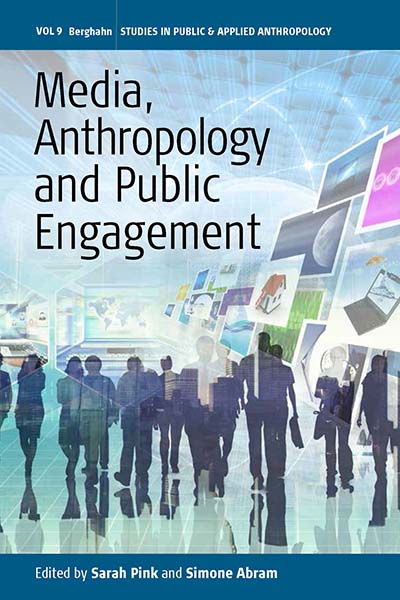 Volume 9
Volume 9
MEDIA, ANTHROPOLOGY AND PUBLIC ENGAGEMENT
Edited by Sarah Pink and Simone Abram
Contemporary anthropology is done in a world where social and digital media are playing an increasingly significant role, where anthropological and arts practices are often intertwined in museum and public intervention contexts, and where anthropologists are encouraged to engage with mass media. Because anthropologists are often expected and inspired to ensure their work engages with public issues, these opportunities to disseminate work in new ways and to new publics simultaneously create challenges as anthropologists move their practice into unfamiliar collaborative domains and expose their research to new forms of scrutiny. In this volume, contributors question whether a fresh public anthropology is emerging through these new practices.
Read Introduction: Mediating Publics and Anthropology: An Introduction
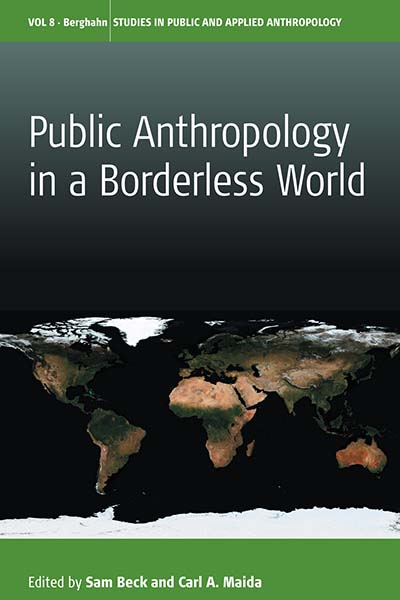 Volume 8 New in Paperback
Volume 8 New in Paperback
PUBLIC ANTHROPOLOGY IN A BORDERLESS WORLD
Edited by Sam Beck and Carl A. Maida
Anthropologists have acted as experts and educators on the nature and ways of life of people worldwide, working to understand the human condition in broad comparative perspective. As a discipline, anthropology has often advocated — and even defended — the cultural integrity, authenticity, and autonomy of societies across the globe. Public anthropology today carries out the discipline’s original purpose, grounding theories in lived experience and placing empirical knowledge in deeper historical and comparative frameworks. This is a vitally important kind of anthropology that has the goal of improving the modern human condition by actively engaging with people to make changes through research, education, and political action.
Read Introduction
Higher Education in Critical Perspective: Practices and Policies Series
Around the globe, universities are being reformed to supply two crucial ingredients of a purported ‘global knowledge economy’: research and graduates. Higher education’s aims, concepts, structures and practices are all in process of change. This series provides in-depth analyses of these changes and how those involved – managers, academics and students – are experimenting with critical pedagogies, reflecting upon the best organization of their own institutions, and engaging with public policy debates about higher education in the 21st Century.
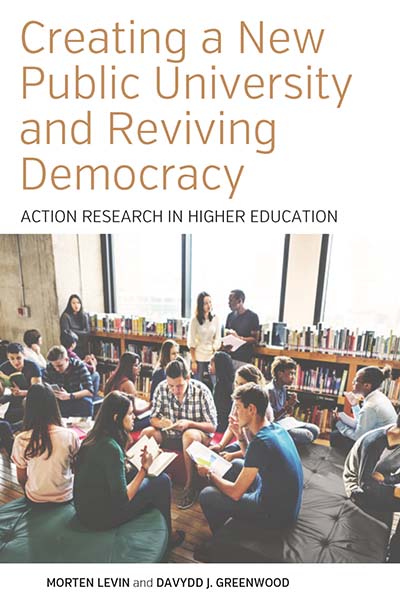 Volume 2
Volume 2
CREATING A NEW PUBLIC UNIVERSITY AND REVIVING DEMOCRACY
Action Research in Higher Education
Morten Levin and Davydd J. Greenwood
“In Creating a New Public University and Reviving Democracy, Morten Levin and Davydd Greenwood add their voices to the burgeoning catalogue of critiques of the impact of neoliberal policies on the quality of higher education in Europe and the US. But unlike many such contributions, this work draws heavily on the change management literature and offers a cornucopia of compelling and well-grounded ideas for reform of the academy.” · Times Higher Education
Based on extensive experience with Action Research-based organizational change in universities and private sector organizations, Levin and Greenwood analyze the wreckage created by neoliberal academic administrators and policymakers. The authors argue that public universities must be democratically organized to perform their educational and societal functions. The book closes by laying out Action Research processes that can transform public universities back into institutions that promote academic freedom, integrity, and democracy.
Read Introduction: Democracy and Public Universities
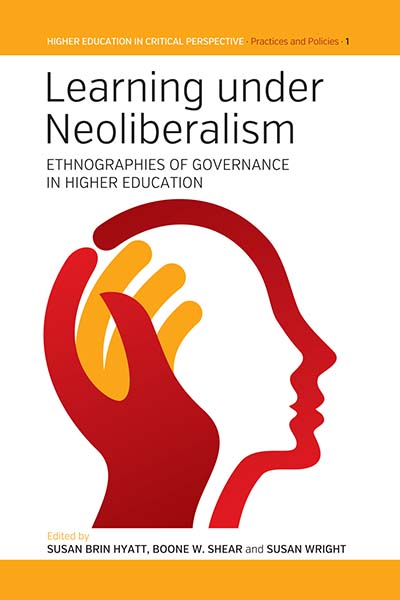 Volume 1 New in Paperback
Volume 1 New in Paperback
LEARNING UNDER NEOLIBERALISM
Ethnographies of Governance in Higher Education
Edited by Susan Brin Hyatt, Boone W. Shear, and Susan Wright
“All in all, Learning under Neoliberalism is an important contribution to the critical studies of HE transformations taking place in the Western world today. It goes some way in helping us figure out the ways the university as an institution and the student as a telling figure are changing, for better or worse, in neoliberal times. Notwithstanding the Euro-American focus, this volume has much to offer in terms of inspiring similar kinds of endeavours in other geographical and sociocultural contexts. It stands out because of the rich original ethnography and critical thoughts it offers. It is very well-edited and/or written, a delightful read, and will likely make readers feel they are taking part in an engaging conversation.” · Social Anthropology
As part of the neoliberal trends toward public-private partnerships, universities all over the world have forged more intimate relationships with corporate interests and more closely resemble for-profit corporations in both structure and practice. These transformations, accompanied by new forms of governance, produce new subject-positions among faculty and students and enable new approaches to teaching, curricula, research, and everyday practices. The contributors to this volume use ethnographic methods to investigate the multi-faceted impacts of neoliberal restructuring, while reporting on their own pedagogical responses, at universities in the United States, Europe, and New Zealand.
Read Introduction: Higher Education, Engaged Anthropology, and Hegemonic Struggle
RESEARCH METHODS FOR ANTHROPOLOGICAL STUDIES OF FOOD AND NUTRITION Volumes I-III
Edited by Janet Chrzan and John Brett
BUY ALL THREE VOLUMES FOR 20% DISCOUNT
Published in Association with the Society for the Anthropology of Food and Nutrition (SAFN) and in Collaboration with Rachel Black and Leslie Carlin
These volumes offer a comprehensive reference for students and established scholars interested in food and nutrition research in Nutritional and Biological Anthropology, Archaeology, Socio-Cultural and Linguistic Anthropology, Food Studies and Applied Public Health.
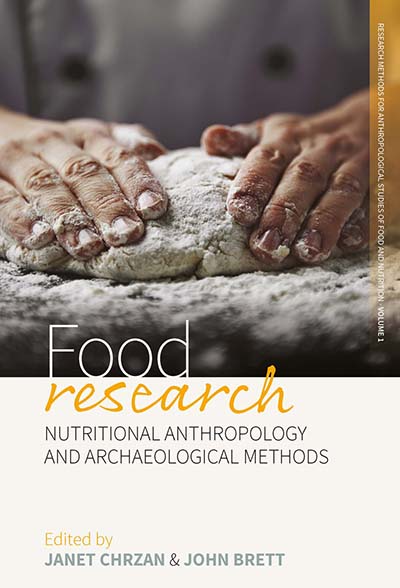 Volume I
Volume I
FOOD RESEARCH
Nutritional Anthropology and Archaeological Methods
Edited by Janet Chrzan and John Brett
Biocultural and archaeological research on food, past and present, often relies on very specific, precise, methods for data collection and analysis. These are presented here in a broad-based review. Individual chapters provide opportunities to think through the adoption of methods by reviewing the history of their use along with a discussion of research conducted using those methods. A case study from the author’s own work is included in each chapter to illustrate why the methods were adopted in that particular case along with abundant additional resources to further develop and explore those methods.
Read Introduction and Research Design
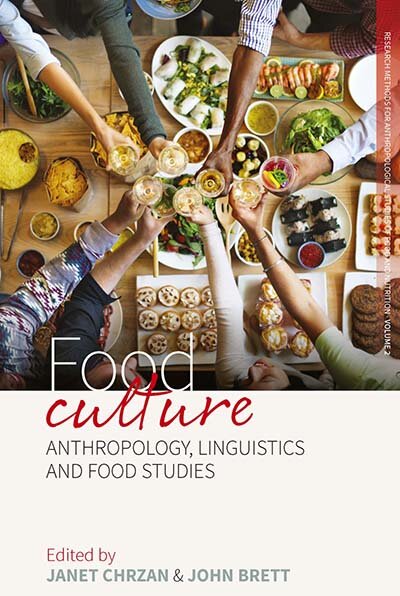 Volume II
Volume II
FOOD CULTURE
Anthropology, Linguistics and Food Studies
Edited by Janet Chrzan and John Brett
This volume offers a comprehensive guide to methods used in the sociocultural, linguistic and historical research of food use. This volume is unique in offering food-related research methods from multiple academic disciplines, and includes methods that bridge disciplines to provide a thorough review of best practices. In each chapter, a case study from the author’s own work is to illustrate why the methods were adopted in that particular case along with abundant additional resources to further develop and explore the methods.
 Volume III
Volume III
FOOD HEALTH
Nutrition, Technology, and Public Health
Edited by Janet Chrzan and John Brett
Nutritional Anthropology and public health research and programming have employed similar methodologies for decades; many anthropologists are public health practitioners while many public health practitioners have been trained as medical or biological anthropologists. Recognizing such professional connections, this volume provides in-depth analysis and comprehensive review of methods necessary to design, plan, implement and analyze public health programming using anthropological best practices. To illustrates the rationale for use of particular methods, each chapter elaborates a case study from the author’s own work, showing why particular methods were adopted in each case.
FORTHCOMING
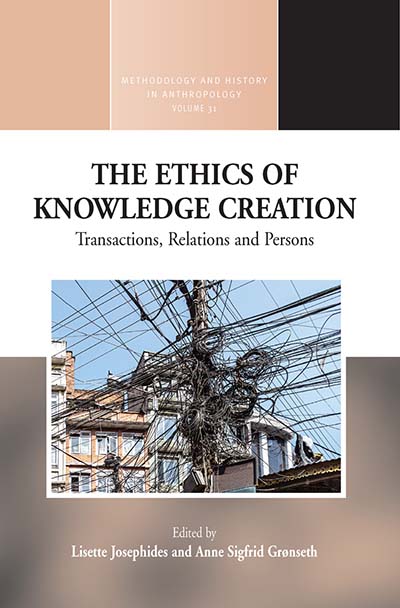 THE ETHICS OF KNOWLEDGE CREATION
THE ETHICS OF KNOWLEDGE CREATION
Transactions, Relations, and Persons
Edited by Lisette Josephides and Anne Sigfrid Grønseth
Volume 31, Methodology & History in Anthropology
Anthropology lies at the heart of the human sciences, tackling questions having to do with the foundations, ethics, and deployment of the knowledge crucial to human lives. The Ethics of Knowledge-Creation focuses on how knowledge is relationally created, how local knowledge can be transmuted into ‘universal knowledge’, and how the transaction and consumption of knowledge also monitors its subsequent production. This volume examines the ethical implications of various kinds of relations that are created in the process of ‘transacting knowledge’ and investigates how these transactions are also situated according to broader contradictions or synergies between ethical, epistemological, and political concerns.
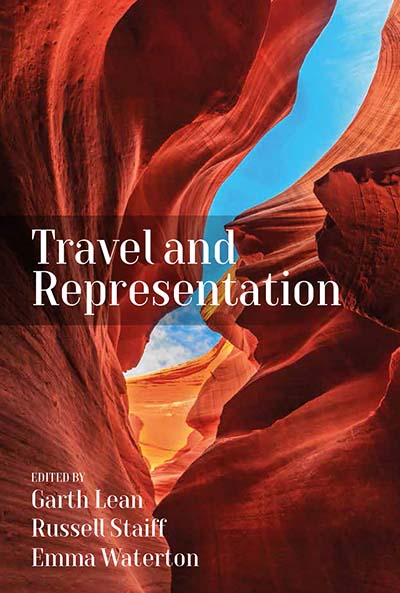 TRAVEL AND REPRESENTATION
TRAVEL AND REPRESENTATION
Edited by Garth Lean, Emma Waterton, and Russell Staiff
Travel and Representation is a timely volume of essays that explores and re-examines the various convergences between literature, art, photography, television, cinema and travel. The essays do so in a way that appreciates the entanglement of representations and travel at a juncture in theoretical work that recognizes the limits of representation, things that lie outside of representation and the continuing power of representation. The emphasis is on the myriad ways travelers/scholars employ representation in their writing/analyses as they re-think the intersections between travelers, fields of representation, imagination, emotions and corporeal experiences in the past, the present and the future.
Previously Published
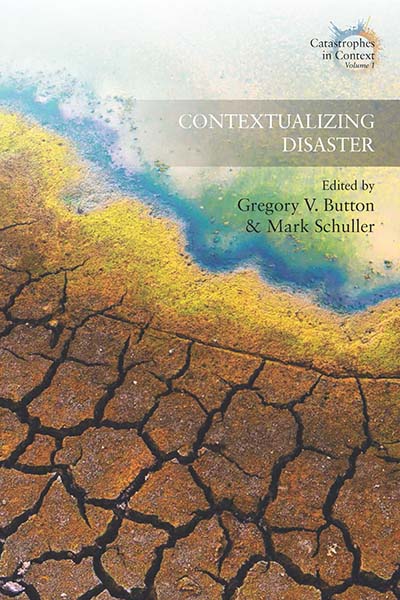 Paperback Original
Paperback Original
CONTEXTUALIZING DISASTER
Edited by Gregory V. Button and Mark Schuller
NEW SERIES: Volume 1, Catastrophes in Context
Contextualizing Disaster offers a comparative analysis of six recent “highly visible” disasters and several slow-burning, “hidden,” crises that include typhoons, tsunamis, earthquakes, chemical spills, and the unfolding consequences of rising seas and climate change. The book argues that, while disasters are increasingly represented by the media as unique, exceptional, newsworthy events, it is a mistake to think of disasters as isolated or discrete occurrences. Rather, building on insights developed by political ecologists, this book makes a compelling argument for understanding disasters as transnational and global phenomena.
Read Introduction
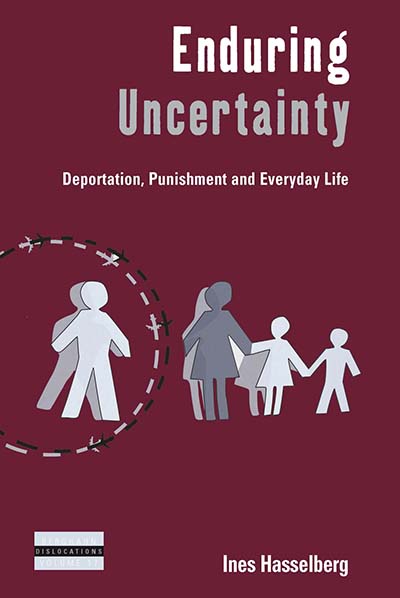 2017 PROSE AWARD FOR ANTHROPOLOGY
2017 PROSE AWARD FOR ANTHROPOLOGY
ENDURING UNCERTAINTY
Deportation, Punishment and Everyday Life
Ines Hasselberg
Volume 17, Dislocations
Focusing on the lived experience of immigration policy and processes, this volume provides fascinating insights into the deportation process as it is felt and understood by those subjected to it. The author presents a rich and innovative ethnography of deportation and deportability experienced by migrants convicted of criminal offenses in England and Wales. The unique perspectives developed here – on due process in immigration appeals, migrant surveillance and control, social relations and sense of self, and compliance and resistance – are important for broader understandings of border control policy and human rights.
Enduring Uncertainty: Deportation, Punishment and Everyday Life by Ines Hasselberg is available open access under a Creative Commons Attribution-NonCommercial-NoDerivatives 4.0 International License (CC BY-NC-ND 4.0).
Read Introduction
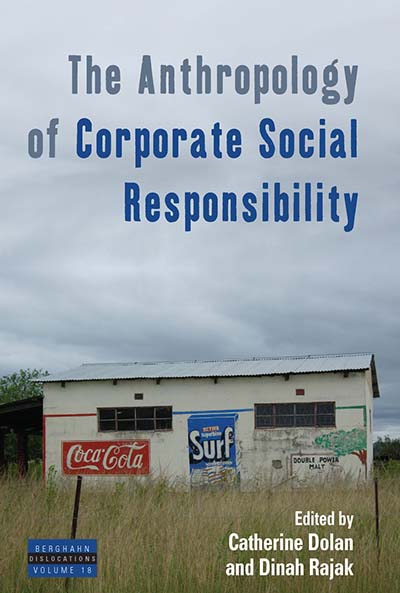 THE ANTHROPOLOGY OF CORPORATE SOCIAL RESPONSIBILITY
THE ANTHROPOLOGY OF CORPORATE SOCIAL RESPONSIBILITY
Edited by Catherine Dolan and Dinah Rajak
Afterword by Robert J. Foster
Volume 18, Dislocations
The Anthropology of Corporate Social Responsibility explores the meanings, practices, and impact of corporate social and environmental responsibility across a range of transnational corporations and geographical locations (Bangladesh, Cameroon, Chile, the Democratic Republic of the Congo, Ghana, India, Peru, South Africa, the UK, and the USA). The contributors examine the expectations, frictions and contradictions the CSR movement is generating and addressing key issues such as the introduction of new forms of management, control, and discipline through ethical and environmental governance or the extent to which corporate responsibility challenges existing patterns of inequality rather than generating new geographies of inclusion and exclusion.
Read Introduction: Towards an Anthropology of Corporate Social Responsibility
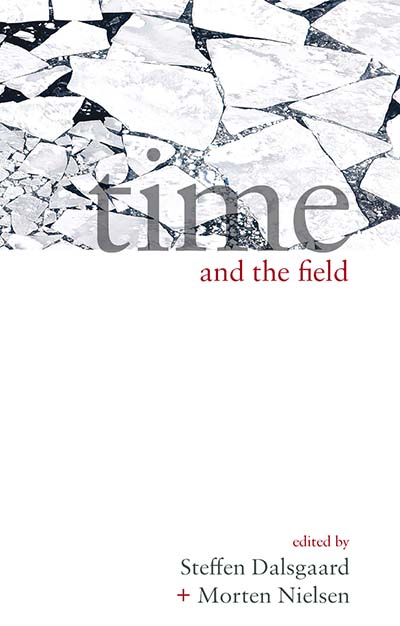 Paperback Original
Paperback Original
TIME AND THE FIELD
Edited by Steffen Dalsgaard and Morten Nielsen
Afterword by George Marcus
In recent years, ethnographic fieldwork has been subjected to analytical scrutiny in anthropology. Ethnography remains anchored in tropes of spatiality with the association between field and fieldworker characterized by distances in space. With updates on the discussion of contemporary requirements to ethnographic research practice, Time and the Field rethinks the notion of the field in terms of time rather than space. Such an approach not only implies a particular attention to the methodology of studying local (social and ontological) imaginaries of time, but furthermore destabilitizes the relationship between fieldworker and fieldsite, allowing it to emerge as a dynamic and ever-shifting constellation.
Read Introduction: Time and the Field
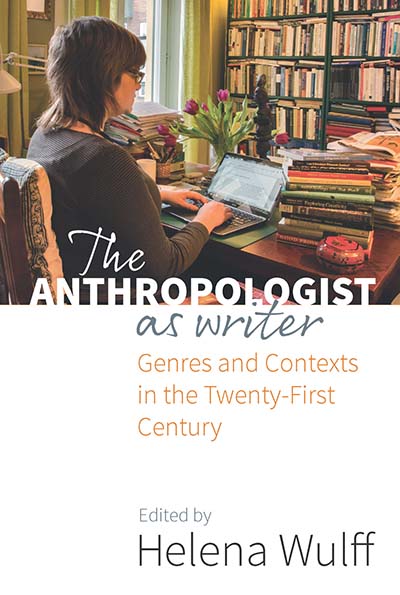 THE ANTHROPOLOGIST AS WRITER
THE ANTHROPOLOGIST AS WRITER
Genres and Contexts in the Twenty-First Century
Edited by Helena Wulff
Writing is crucial to anthropology, but which genres are anthropologists expected to master in the 21st century? This book explores how anthropological writing shapes the intellectual content of the discipline and academic careers. First, chapters identify the different writing genres and contexts anthropologists actually engage with. Second, this book argues for the usefulness and necessity of taking seriously the idea of writing as a craft and of writing across and within genres in new ways. Although academic writing is an anthropologist’s primary genre, they also write in many others, from drafting administrative texts and filing reports to composing ethnographically inspired journalism and fiction.
Read Introducing the Anthropologist as Writer: Across and Within Genres
BERGHAHN JOURNALS
 Anthropology in Action
Anthropology in Action
Journal for Applied Anthropology in Policy and Practice
Anthropology in Action is a peer-reviewed journal publishing articles, commentaries, research reports, and book reviews in applied anthropology. Contributions reflect the use of anthropological training in policy- or practice-oriented work and foster the broader application of these approaches to practical problems. The journal provides a forum for debate and analysis for anthropologists working both inside and outside academia and aims to promote communication amongst practitioners, academics and students of anthropology in order to advance the cross-fertilisation of expertise and ideas.
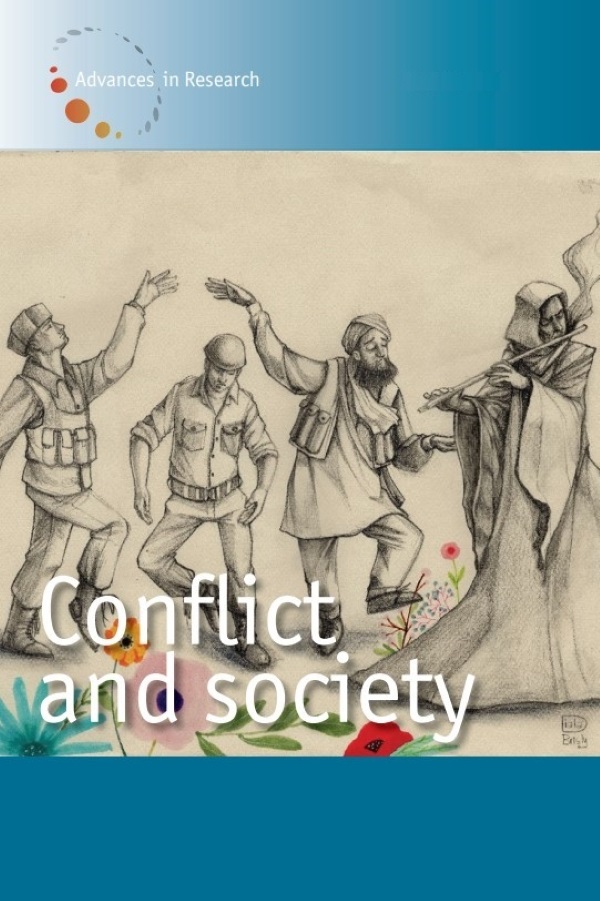 Conflict and Society
Conflict and Society
Advances in Research
Publishing peer-reviewed articles by international scholars, Conflict and Society expands the field of conflict studies by using ethnographic inquiry to establish new fields of research and interdisciplinary collaboration. An opening special section presents general articles devoted to a topic or region followed by a section featuring conceptual debates on key problems in the study of organized violence. Review articles and topical overviews offer navigational assistance across the vast and varied terrain of conflict research, and comprehensive reviews of new books round out each volume. With special attention paid to ongoing debates on the politics and ethics of conflict studies research, including military-academic cooperation, Conflict and Society will be an essential forum for scholars, researchers, and policy makers in the fields of anthropology, sociology, political science, and development studies.
 Environment and Society
Environment and Society
Advances in Research
Environment and Society publishes critical reviews of the latest research literature on environmental studies, including subjects of theoretical, methodological, substantive, and applied significance. Articles also survey the literature regionally and thematically and reflect the work of anthropologists, geographers, environmental scientists, and human ecologists from all parts of the world in order to internationalize the conversations within environmental anthropology, environmental geography, and other environmentally oriented social sciences. The publication will appeal to academic, research, and policy-making audiences alike.
See Also: EnviroSociety, a multimedia site that provides insights into contemporary socio-ecological issues with posts from top scholars in the social sciences that engage readers interested in current environmental topics.
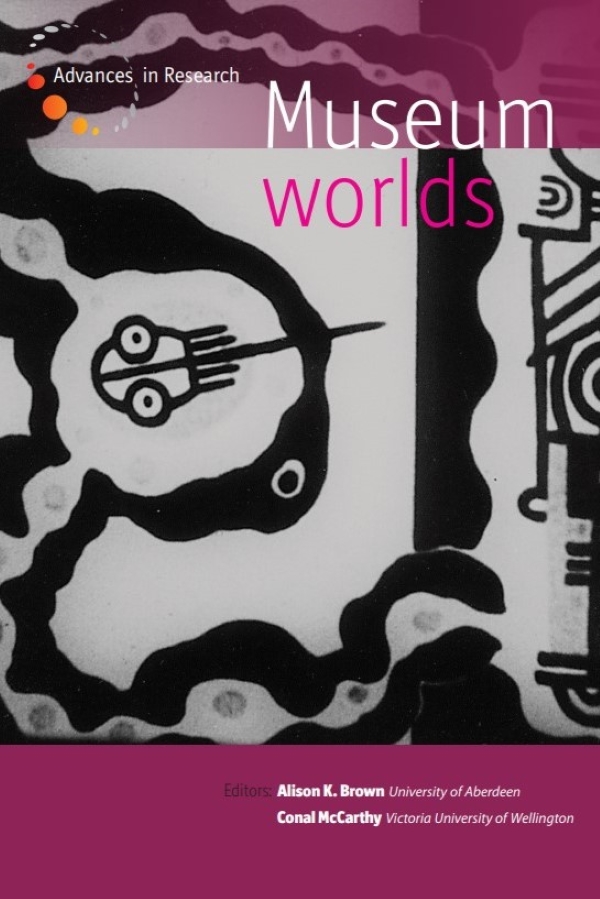 Museum Worlds
Museum Worlds
Advances in Research
Museum Worlds: Advances in Research aims to trace and comment on major regional, theoretical, methodological, and topical themes and debates, and to encourage comparison of museum theories, practices, and developments in different global settings. Each issue includes a conversation piece on a current topic, as well as peer-reviewed scholarly articles and review articles, book and exhibition reviews, and news on developments in museum studies and related curricula in different parts of the world. Drawing on the expertise and networks of a global Editorial Board of senior scholars and museum practitioners, the journal both challenges and develops the core concepts that link different disciplinary perspectives on museums by bringing new voices into ongoing debates and discussions. Articles are of exceptional quality and general interest from around the world.
See Also: Museum Worlds: Companion Site, a site that aims to complement the journal by bringing current museum themes, practices, and developments to the forefront of global discussions in the field of Museum Studies.
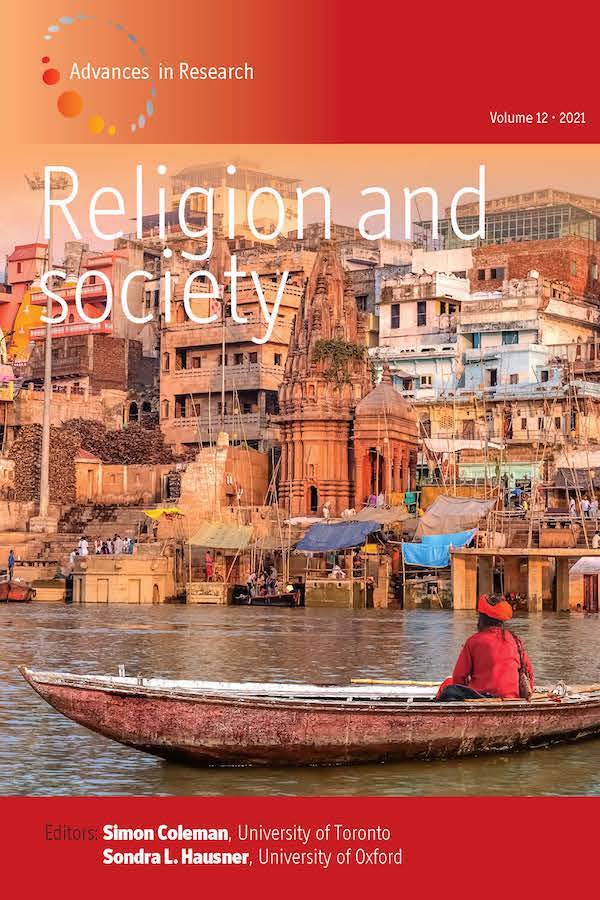 Religion and Society
Religion and Society
Advances in Research
Religion and Society: Advances in Research responds to the need for a rigorous, in-depth review of current work in the expanding sub-discipline of the anthropology of religion. In addition, this important, peer-reviewed annual aims to provide a dynamic snapshot of developments in the study of religion as a whole and encourages interdisciplinary perspectives.
Each volume contains a Portrait section that profiles a senior scholar of religion, with invited essays on the scholar’s work by authorities in their respective subfields. In the Articles section, contributions provide overviews of a given topic with critical, “positioned” views of the subject and of relevant research. In the Debate section, scholars of religion reflect on a high-profile issue or event, and the Author Meets Critics section invites discussants to comment on a recently published volume, followed by a response from the author. Other sections cover teaching, news, and—vitally—reviews of new books and ethnographic films.
Nature and Culture is a forum for the international community of scholars and practitioners to present, discuss, and evaluate critical issues and themes related to the historical and contemporary relationships that societies, civilizations, empires, regions, nation-states have with Nature. The journal contains a serious interpolation of theory, methodology, criticism, and concrete observation forming the basis of this discussion.
The mission of the journal is to move beyond specialized disciplinary enclaves and mind-sets toward broader syntheses that encompass time, space and structures in understanding the Nature-Culture relationship. The Journal furthermore provides an outlet for the identification of knowledge gaps in our understanding of this relationship.
Due to the dramatic changes in global affairs related to regional integration, studies can no longer be limited to the analysis of economic competitiveness and political power in global geopolitics. Regions and Cohesion is a needed platform for academics and practitioners alike to disseminate both empirical research and normative analysis of topics related to human and environmental security, social cohesion, and governance. It covers themes, such as the management of strategic resources, environment and society, social risk and marginalization, disasters and policy responses, violence, war and urban security, the quality of democracy, development, public health, immigration, human rights, organized crime, and cross-border human security.

